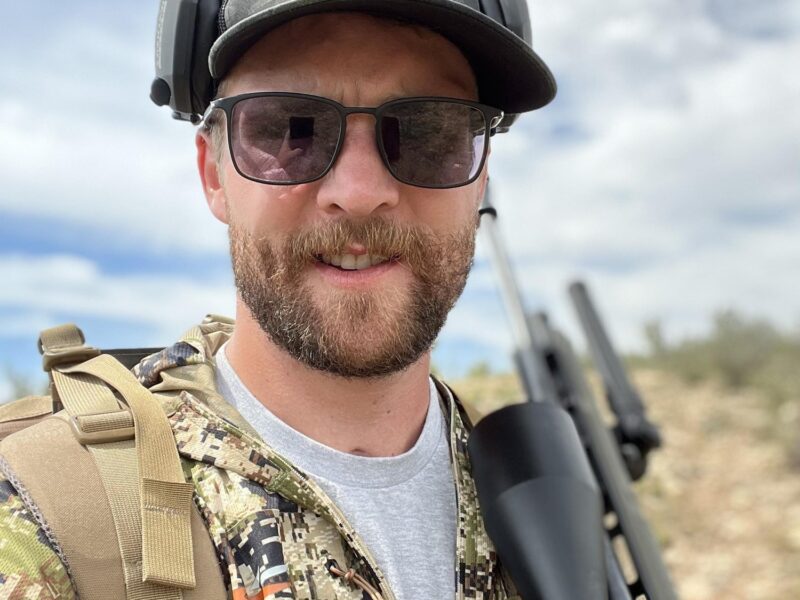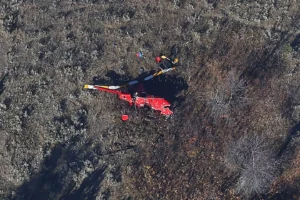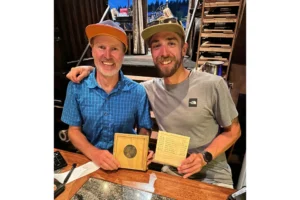Survivors, Health Professionals Confront Mental Health Stigma
May 3 presentation in Jackson to showcase person-focused suicide prevention tactics
- Published In: Other News & Features
- Last Updated: May 02, 2023

Will Wagner, 28, will join Dr. Kent Corso for a free suicide prevention community outreach event in Jackson on May 3. A suicide attempt survivor, Wagner works to destigmatize mental health and suicide in Wyoming. (Courtesy photo from Will Wagner)
By Melissa Thomasma
Special to the Wyoming Truth
At 1:42 a.m. on Jan. 1, 2019, a gunshot pierced the quiet of winter darkness. Will Wagner, then 23, was slumped in his front yard in Laramie; he had pulled the trigger on himself in an attempt to complete suicide. The bullet traveled upward from his chin and shattered his skull into countless fragments, but the swift response of friends, family and medical professionals saved his life.
Today, Wagner, now 28 and a construction worker, is an outspoken advocate for demolishing the stigmas around mental health and suicide across Wyoming, which leads the nation in its per capita suicide rate. Though Teton County’s rate is currently about half of the statewide rate—just shy of 25 per 100,000 people according to the county’s 2021 Community Health Needs Assessment—Wagner knows his efforts are critical in his hometown.

“I’ve lost a few friends from Jackson to suicide in the last few years,” he told the Wyoming Truth, noting that the “cowboy culture” of keeping feelings private and not asking for help contributes to the state’s suicide epidemic. “When I woke up in the hospital, I knew that I wanted to talk to people and make sure they didn’t get to that same spot.”
As Wagner fought through months of surgeries and painful healing, he grew more committed to offering support to others. “I felt like I didn’t have anybody,” he said, recounting many factors that led him to his suicide attempt. “If talking honestly about these important things saves just one person, that’s all I want.”
On May 3 at 6 p.m., Wagner will take to the stage at the Center for the Arts in Jackson with suicidologist Dr. Kent Corso for a community presentation. Sponsored by St. John’s Health and other mental health organizations, the free event will cover strategies for suicide prevention, lethal means counseling and firearm safety. In Wyoming, 72% of suicides involve a gun, according to the state department of health.
Corso also will conduct suicide prevention trainings for teachers, therapists, law enforcement and other first responders throughout the week in addition to the Wednesday night public event.
“Mental health research can take up to 25 years for it to go into practice in the field,” said Lindsay Long, behavioral health manager for St. John’s. “Dr. Corso is training various target audiences on the newest evidence-based standard of care when it comes to suicide prevention and interventions.”
An Air Force veteran and licensed clinical psychologist based in Virginia, Corso has spent years studying the causes of suicide and developing a groundbreaking approach to help those considering self-harm. His approach, called PROSPER, is designed to give individuals in crisis autonomy and compassion when they are in a moment of despair, Long said.
Recognizing internal struggles
Matt Stech, a Jackson Hole-based mental health counselor, trained with Corso on his visit to Wyoming last fall and values his innovative approach to suicide prevention.
“I appreciate the exploration of ambivalence in doing suicide assessments,” Stech said. “If you don’t understand why a person is at the point of wanting to die, it’s hard to build an effective alliance because you really aren’t operating from a place that acknowledges the struggles the person is navigating internally. If you go there with them, they may be willing to share more about why they want to live.”
Stech and Long note that Corso’s tactics include understanding an individual’s crisis rather than applying Title 25—a legislative statute that empowers first responders and doctors to hold a suicidal person in custody, even against their will. Some mental health advocates find it problematic and even counterproductive to manage a person in crisis like they’ve committed a crime.
Said Stech: “I think [Corso’s] model creates a format to have an honest conversation about what the person is experiencing rather than a more impersonal checklist and interrogation-style approach that has been the norm.”
Wagner finds Corso’s approach to firearms compelling. “I have guns, and I still shoot,” he said. “Dr. Corso isn’t anti-gun. He has a rational approach, and I appreciate that.”
For Wagner, responsible gun ownership means that when he’s having a bad day or feeling particularly down, he won’t handle firearms; he’ll keep them secured in a safe until he’s feeling better. Open and intentional community support, as well as ensuring safety basics around gun storage, are ways that suicide prevention and firearm ownership can coexist, he said.
Wagner is pleased to see community conversations unfold around suicide in a way that’s blunt and honest. “Dr. Corso says the word suicide. He doesn’t beat around the bush,” he said. “We have to be willing to say the word without fear that we’re going to cause someone to hurt themselves. It just doesn’t work that way.”













